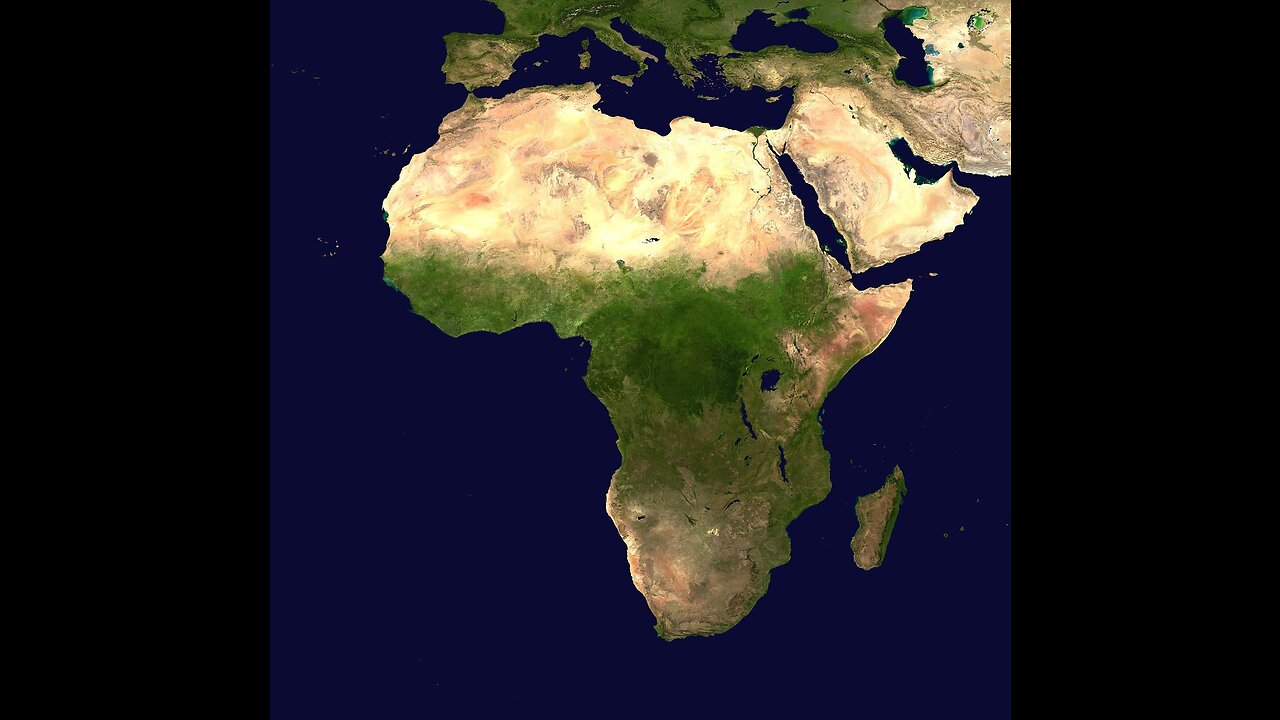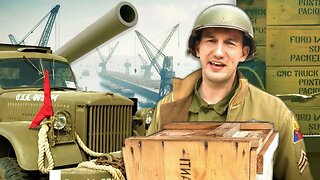Premium Only Content

THE NORTH AFRICAN CAMPAIGN
The North African Campaign and the Allies' Strategy
The tide of war began to shift in late 1942.
Despite initial challenges, the Allies gradually gained control.
The build-up was slow due to shipping limits, air attacks, and lack of road transport.
The arrival of German troops in Tunis led to a stubborn resistance.
The rainy season further complicated matters, bogging down the Allies in mud.
50,000 By the end of the year, German forces totaled close to
However, over the next five months, the Allies gradually gained control of North Africa.
On May 13th, General Alexander signaled to Churchill, "the Tunisian campaign is over.
All enemy resistance has ceased.
We are masters of the North African shores.
This victory lifted spirits in London for the first time in the war.
The Allies then launched invasions of Sicily and the Italian mainland, leading to Italy's surrender three days later.
With the tide of war clearly flowing with the Allies, a major thrust from Italy towards Hitler's Reich would have been logical.
However, the decision not to start such an offensive was political, not military in nature.
Churchill wanted to strike at Germany from both the south and the north and bring Central European and Balkan countries under Allied control.
This strategy was overruled by the Americans at the Quebec Conference of August 1943.
The Allies' strategy in the North African Campaign marked a turning point in World War II.
At the Quebec Conference of August 1943, General Geroge C. Marshall insisted that troops be withdrawn from Italy and used in a secondary invasion of France at the time of the Normandy invasion
Despite the challenges, their victory set the stage for further advances and ultimately, the end of the war.
General Mark Clark, writing in 1950, gives us some real insight into this history changing event.
As a result of orders received from the highest level. "our team was soon broken up and the Fifth Army was sapped of a great deal of its strength. The weakening of the campaign in Italy to invade Southern France instead of pushing on into the Balkans was one of the outstanding political mistakes of the war...
There was Marshal Kesselring, whose intelligence section was completely mystified in the coming weeks when our great forward drive failed to take advantage of its chance to destroy the beaten and disorganized German Army in Italy.
"Whatever the reasons, it is sure they all accrued to the benefit of the German High Command."
"After the fall of Rome, Kesselring's army could have been destroyed __ if we had been allowed to shoot the works in a the final offensive.
The sand was being thrown in the eyes of the 'peasants' to blind them to the fact that the International Banker/Illuminati cabal was engaged in another of their 'urban renewal' projects.
the end minutemen
-
 LIVE
LIVE
Randi Hipper
19 minutes agoTrump’s Crypto Takeover: Reserve Reveal Stuns All!
95 watching -
 58:30
58:30
Kyle Fortch
1 hour agoCadillac Dale: #1 Song With Jack Harlow, Rihanna Sampling His 90s Hit,
1 -
 LIVE
LIVE
SternAmerican
21 hours agoIntegrity in Action call With Steve Stern and Raj Doraisamy Monday, March 3rd at 10:00AM EST
267 watching -
 LIVE
LIVE
Jeff Ahern
1 hour ago $0.82 earnedMonday Madness with Jeff Ahern (6am Pacific)
569 watching -
 16:55
16:55
Clownfish TV
14 hours agoThe Oscars Just Jumped the Shark...
33K13 -
 7:55
7:55
Cooking with Gruel
13 hours agoCooking with Lara Trump on My View
23.2K9 -
 30:51
30:51
Survive History
22 hours ago $8.79 earnedCould You Survive Behind the Frontline in World War Two?
33.7K4 -
 9:28
9:28
Dr. Nick Zyrowski
12 hours agoI Quit Caffeine For 30 Days - This Happened!
23.6K7 -
 25:54
25:54
RealitySurvival
15 hours agoTop 3 Threats In This New Timeline!
30.6K2 -
 7:00
7:00
State of the Second Podcast
19 hours agoCan Your Firearms Handle the Heat?
19.5K2